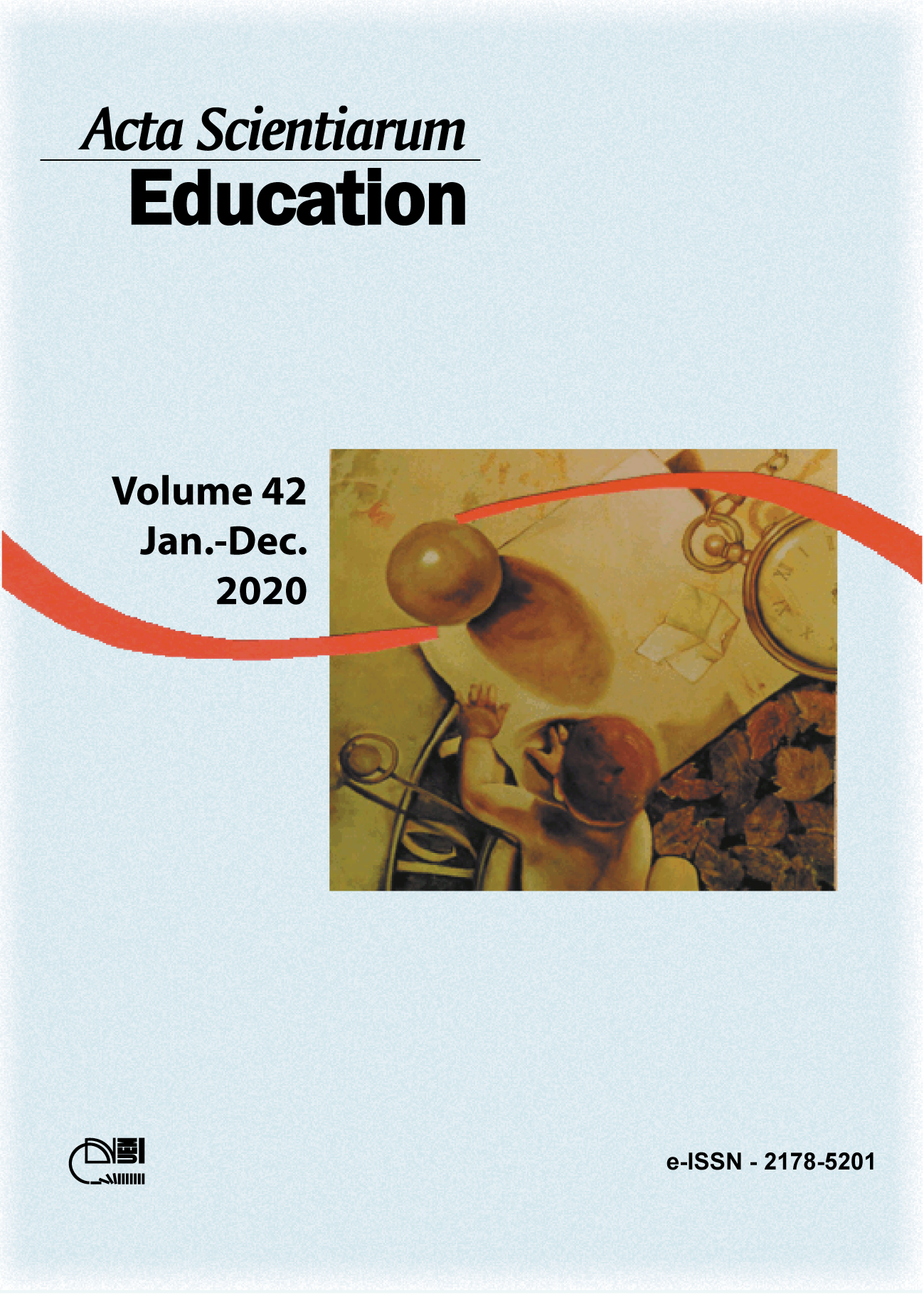The narrative in the children's education: the mobilization of higher psychological functions in discursive interaction situations
Abstract
This article discusses the narrative as an activity that encourages higher psychological functions, such as rational language, verbal thought, voluntary attention, mediated memory and imagination, and how it constitutes a fundamental experience to the learning and the children's development. Situations of interaction are analyzed, during which the children were requested by their teacher to organize discursive sequences about facts of their life and observed stories. This study is based on the Cultural-Historical Theory and the work of Jerome Bruner about the narrative as a category of thought with and about the world. The following propositions stem from this discussion: the higher psychological functions act reciprocally on the course of the narrative; the participation of the teacher and their peers helps in the (re)structuring of the language and the thought of the children; questions from another person allows the narrator to qualify the trajectory of his own thought and make it more complex; active listening is one of the fundamental conditions for the conduction of the narrative thought. It is then concluded that the opportunities during which narratives are employed constitute one of the primordial activities of the children's education, as they utilize a form of discursive thought that organizes/makes typically human psychological functions more complex.
Downloads

This work is licensed under a Creative Commons Attribution 4.0 International License.
DECLARATION OF ORIGINALITY AND COPYRIGHTS
I declare that this article is original and has not been submitted for publication in any other national or international journal, either in part or in its entirety.
The copyright belongs exclusively to the authors. The licensing rights used by the journal are the Creative Commons Attribution 4.0 (CC BY 4.0) license: sharing (copying and distributing the material in any medium or format) and adaptation (remixing, transforming, and building upon the material thus licensed for any purpose, including commercial purposes) are permitted.
It is recommended that you read this link for more information on the subject: providing credits and references correctly, among other crucial details for the proper use of the licensed material.














































